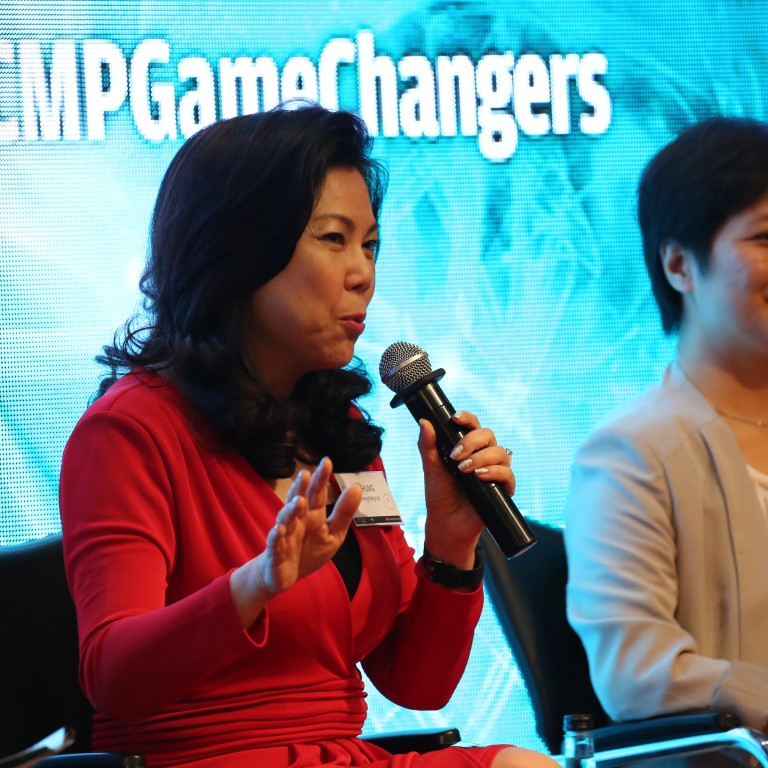
IBM executive says even ‘dinosaurs’ can thrive by innovating: Game Changers
IBM may have felt the brunt of Beijing’s protectionist-leaning policy changes this year, but the American multinational technology and consulting company weathers such storms by adhering to an innovative mindset, it said Thursday.
IBM is “like a dinosaur company, but we’re not in museums, we’re in 170 countries, alive and kicking,” said Cordelia Chung, vice-president of industry solutions at IBM Asia Pacific.
“We continue to thrive and operate,” she added, “because innovation is a core DNA of IBM. Reinvention is important to the company.”
IBM said earlier this year in Beijing that it would start working more closely with Chinese companies, another future-oriented change.
Chung was speaking at the South China Morning Post Game Changers forum in Hong Kong, a quarterly event to discuss current and future trends in the tech world.
Staff should be encouraged to strive for a “better purpose”, Chung said, while companies must tread boldly and not be afraid to fail.
“We want everyone [in the company] to contribute to that purpose, that is essential to clients, to the community and to a changing marketplace,” she said.
Large corporations and bodies, such as IBM and the Hong Kong government, will benefit from attracting a diverse range of talent and giving them the opportunity to experiment, she said.
IBM sold its personal computer business to Chinese multinational computer technology company Lenovo in 2005. The two agreed last year that IBM would also sell Lenovo its Intel-based server business.
One means by which large corporates can innovate is acquiring start-ups and bringing in innovative, creative individuals from them.
Speaking during a panel on acquisitions, Danny Lee, a partner a Blue Pool Capital, the family office of Alibaba co-founder Joe Tsai and others, said that the Chinese e-commerce giant is "always on the look out for the next game changing company".
"[Corporates should look at] what will change given all that's going on, and how can we be part of it," Lee said.
Chung was joined at the “Establishing internal start-ups and growth initiatives for organic growth” forum by panellists from the private and public sector.
Many agreed that while a culture of innovation may be hard to establish at bigger companies, which can be set in their ways, it is a prerequisite for growth.
Hong Kong, for example, should focus on how it can improve its programmes and services to make a positive impact on society, said Winnie Leong, chief consultant at the Efficiency Unit of the Hong Kong government.
The unit helps different departments coordinate better to boost the efficiency of governance.It reports directly to Chief Secretary Carrie Lam.
Leong also called for a more cohesive approach in terms of setting and implementing policy.
Our unit "wants to make sure that when departments make policies, and when they carry out day-to-day [duties] … we stand together,” she said.
Other speakers outlined what they had been able to achieve in a corporate culture that allowed them to spread their wings.
Charlie Melvoin, project leader of Blueprint, a co-working space and accelerator programme owned by Swire Properties, described himself as a former 'wantrepreneur' before he joined the company as a management trainee.
Last year, he got the green light from Swire CEO Guy Bradley to set up Blueprint.
"[You] can get valuable training at big companies," Melvoin said. "[Swire] was a hands-on operational opportunity within a safety net and an ecosystem of people to learn from."

